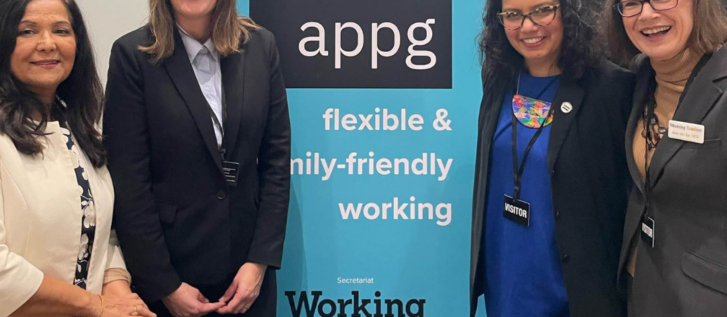
The importance of male allyship
It’s rewarding to win awards and recognition for promoting greater diversity, but they...read more
Max Jennings, founder of Hoop, writes about why flexible working isn’t just nice – it’s necessary.

Remote-working, the gig economy, coworking spaces … how we work continues to rapidly evolve, but employer and legislative attitudes to parent employees remain slow to change.
There’s a lot of incredible talent lost, needlessly so, when parents are unable to fulfil their full potential returning to work, simply because their employer can’t provide the added flexibility that their life now requires. A recent report from the Equality and Human Rights Commission suggests that each year 54,000 women are forced out of work after having a baby! Same person, same talent, same experience, but no longer valued at their employer.
The challenges that parents face when returning to work can vary hugely. Making ends meet financially and managing to afford childcare is a big challenge. In fact research from OECD revealed earlier this year that the UK has the second highest costs for childcare in the world, meaning that a 35% of a couples’ monthly earnings go to paying for childcare (only topped by New Zealand at 37.3%).
With such high childcare costs, this also forces parents to question the value of work versus childcare, which becomes both an emotional and financial equation to balance. Then there’s the nursery and school drop offs and pick-ups. The majority of nurseries, childminders and schools hours are the same as traditional office hours. Clearly a parent can’t be in two places at once, so something has to give.
This is where flexible working moves from a nice-to-have, to an essential to make working work. The biggest challenge is that once parents fall out of the workplace, finding a way back in can be all the more challenging. New research this month revealed that 85% of jobs aren’t advertised as flexible, this conflicts with the notion that 9 in 10 employers say that they offer some level of flexibility to staff – the problem is that it’s not letting parents in the door.
I’m lucky to work with a lot of incredible parents from a wide range of professional backgrounds that have started their own businesses. These inspirational entrepreneurs typically started out because their previous employment couldn’t support the work/life balance they wanted for their family.
To dig a bit deeper, we recently commissioned research speaking to 2,000 parents to understand the drivers behind going it alone. Amongst the results, a quarter of working mums and dads (24%) said that the inflexibility of a previous workplace was a key factor encouraging them to go it alone; and reinforcing our earlier assumptions.
The problem is clearer than the potential solutions. Offices exist for a reason, childcare is eye wateringly expensive, and no amount of company holiday will ever cover the school holidays. We need to reset the way we think about work, and offer the flexibility that parents need.
I’ve employed hundreds of people in my career, and know the realities of running a growing business. Recognising the needs of parents, needn’t mean compromising on the goals of your company or creating a two-tier system for parents and non-parents; but it does require a sensitive approach to how you coordinate core work hours and to be willing to create roles that support shorter working weeks. Lastly, nurturing an environment where there’s no shame in leaving loudly to make time for family outside of the office is good for all team members.
The good news from our study is that after becoming a parent a lot of people also go for it and launch their own businesses. Half of self-employed parents (49%) report feeling happier and a third more empowered (33%), but what about the others? The people who have felt pushed out of the workplace, and are struggling to find their way back in.
With the rising average age of a first-time mum 31, and a dad 33 – we have the opportunity to engage talent with incredible experience. It would be a shame in 2019 to add to the number of people leaving the workforce because of a need for greater flexibility. As a dad of two young daughters, I don’t want them to enter a workplace where starting a family will result in stalling your career.
Max Jennings is one of the founders of Hoop – read more about Hoop and the research he touches on here.

New flexible working regulations came in over the weekend. But what do they mean and how does the process work for making a request for flexible... read more

HR expert Alan Price outlines the legislative changes coming up in April that will help working families. read more

A new parliamentary group aims to push the conversation about flexible working further. read more

Will we all be working in the metaverse in the future, what are the implications and are our children equipped for a more virtual world of work? read more